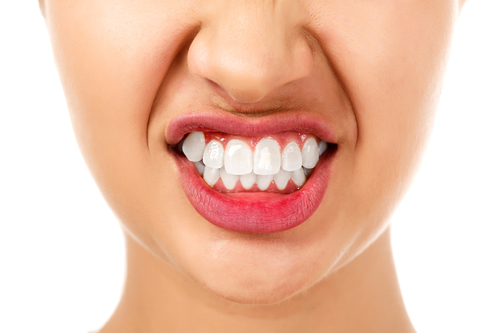
Have you ever caught yourself subconsciously tapping away to the rhythm of a song in the car, not with your fingers, but with your teeth? Or maybe you have a bad habit of clenching your jaw in stressful situations and your teeth feel like they’re wearing away to nothing? It’s time to fight back – against yourself!
Truth is, teeth grinding is more common than you might expect.
How Common is Bruxism?
Bruxism, more commonly known as the grinding or clenching of teeth, is an unconscious condition to most. Broken down into two different types, Awake bruxism is found to be more common in females while sleep bruxism isn’t more connected to one gender over the other.
While it hasn’t been widely studied, research shows us that anywhere from 8-16 percent of the adult population experiences some form of Bruxism. Concerning numbers show that the disorder is appearing more frequently in the younger population and 14-20 percent of children are subconsciously grinding their teeth.
Common causes of Awake Bruxism include:
- Life stress
- Work pressure
- Familial responsibility
- Anxiety
- Anger
- Frustration
- Coping for deep concentration
Common causes of Sleep Bruxism include:
- Stress
- Anxiety
- Medications or other substances
- Subconscious coping for stress in dreamstate
How Can I Tell Whether I’m Grinding My Teeth?
Signs and symptoms to watch out for if you think you may be grinding your teeth include:
- Grinding. Teeth grinding or clenching, which may be loud enough to wake up your sleep partner
- Flattened Teeth. If your teeth feel flattened, chipped, loose or fractured
- Worn Enamel. If you’re experiencing pain from exposing deeper layers of your teeth
- Tooth Pain. Increase in tooth pain or all over sensitivity
- Sore Jaw Muscles. Tired or tight jaw muscles, or a locked jaw that won’t fully open or close
- Body Pain. Experiencing body pain or soreness in the face, neck or jaw area
- Earaches. Pain similar to symptoms of an earache
- Headaches. Throbbing or dull ache to the head in the temples region
- Cheek Lesions. Cuts or raised cheek tissue from chewing on your inner cheek
- Broken or Chipped Dental Work. Waking up to a chipped tooth, crown, filling or bridge that was fully intact when you first went to sleep
- Disruptive Sleep Patterns. If you find yourself waking suddenly from any of these pain symptoms
What About TMJ Disorders
Grinding your teeth either at night, or during the day can lead to jaw pain commonly known as TMJ. The TMJ joint is where the upper and lower jaw meets and grinding your teeth causes pressure to build in this joint. If grinding is a recurrence, the components of the TMJ joint can quickly become damaged and will no longer function properly leading the jaw to feel sore, tired, inflamed or to make a clicking sound when opening and closing the mouth.
Avoiding teeth grinding is the best way to prevent TMJ from forming.
How Can I Treat Bruxism?
Follow these key steps to help eliminate teeth grinding, and discuss further treatment options with your dentist if you have any of the listed symptoms above. Find relief from teeth grinding by trying these steps to stopping your jaw pain:
- Find time to relax – Stress leads to muscle tension, specifically in the head, jaw, neck and shoulders. Try taking up a new exercising routine like yoga or pilates, meditate, focus on quiet time alone before bed, or channel your stress through a creative outlet.
- Invest in a night guard – If your clenching or grinding is happening at night when you’re not even aware of it, you might benefit from wearing a night guard. Similar to a retainer, a night guard will place an extra soft layer between your teeth to protect them from any unconscious grinding that may take place in your sleep.
- Orthodontic treatment – A more substantial mouth guard may help your grinding if a night guard wasn’t effective enough. Ask your dentist or orthodontist to help figure out what works best for you.
- Regular dental exams – Seeing your dentist regularly will help to discover problems that you weren’t even aware of. Your dentist can assist in getting you an early diagnosis and put a stop to a more serious issue from developing.
- Ask about botox – If you still experience chronic jaw pain from grinding and a night guard hasn’t helped, it may be time to try an alternative. Botox inserted into the jaw can keep the jaw in a resting position to promote healing.
Don’t let teeth grinding wear you down and schedule an exam today to discuss your road to healing and a more stress-free life.





